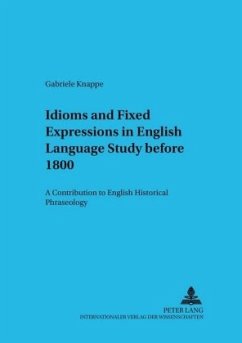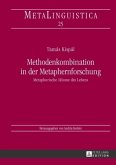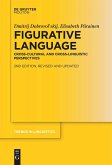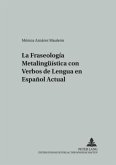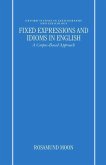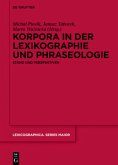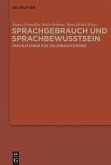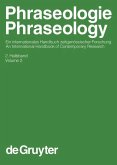This study represents the first critical examination of the contexts and ways in which idioms and fixed expressions of two or more words (phraseological units) such as let sleeping dogs lie , try one's luck or at hand were collected, commented upon and also analysed by English language scholars between about 1440 and 1800. The large-scale investigation surveys theoretical and practical approaches including proverb studies, treatises on rhetoric and style, foreign-language teaching, collections of phrases, bilingual and monolingual lexicography, translation, universal and philosophical language schemes, shorthand systems and English grammar books. This pioneering study is intended to contribute to the formation of English historical phraseology as a new subdiscipline in English linguistics.
"... this Bamberg 'habilitationsschrift' fills a gap in the state of research on the history of English phraseology and the history of English language study." (Horst Weinstock, Anglia)
"Her book has uncovered many hitherto unknown facts in historical English phraseology, and it opens many new doors for further diachronic investigations of how phraseology was handled in other languages. Gabriele Knappe has provided the best possible guide, and it is time that others will follow her excellent lead." (Wolfgang Mieder, Proverbium)
"Her book has uncovered many hitherto unknown facts in historical English phraseology, and it opens many new doors for further diachronic investigations of how phraseology was handled in other languages. Gabriele Knappe has provided the best possible guide, and it is time that others will follow her excellent lead." (Wolfgang Mieder, Proverbium)

